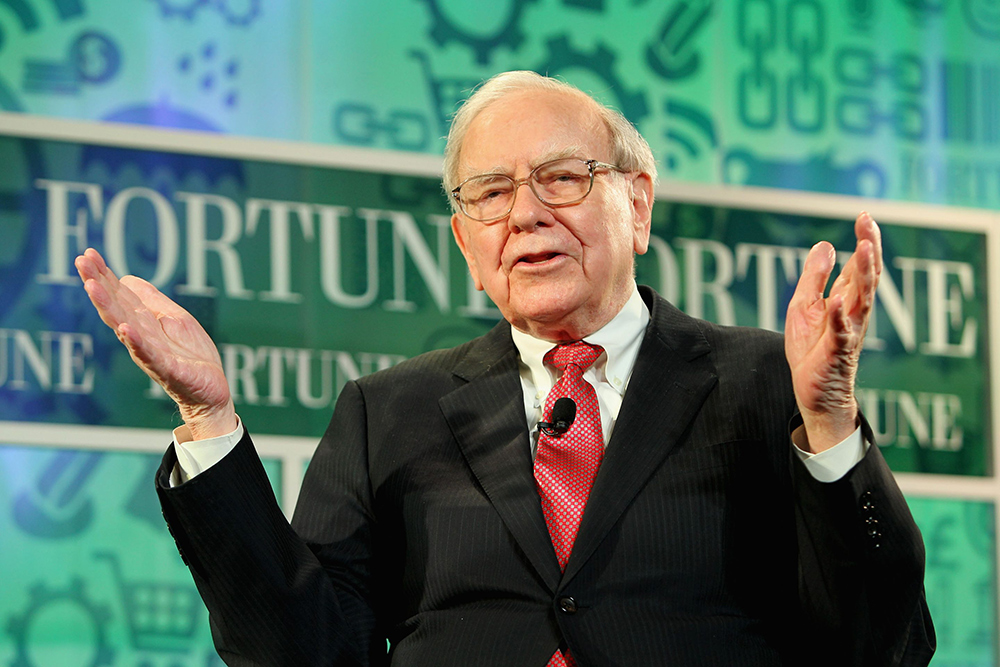
股票回购是政治上受到指责最多的公司策略。如果你问伊丽莎白·沃伦,她会告诉你,股票回购是赤裸裸的“市场操纵”,应该视为违法行为。马萨诸塞州参议员沃伦认为,上市公司回购自己的股票时,希望能提高每股收益,他们的所作所为实际上是在扼杀创新。本可以用来兴建新工厂、投资研发或招聘新员工的资金,却只是被用来拉升股价,让已经富裕的股东们和内部人士更富,而这却是以经济增长为代价。
但伯克希尔哈撒韦(Berkshire Hathaway)董事长兼CEO沃伦·巴菲特却是股票回购策略的坚定支持者,他数十年来曾大量使用这种策略。92岁的亿万富翁巴菲特在2月发布的一年一度写给股东的信中,直言不讳地反驳了对这种做法的批评意见。
他写道:“当你被告知所有回购都对股东或国家有害,或对首席执行官特别有利时,注意这个人要么是经济文盲,要么是花言巧语的煽动者(这两个角色并不相互排斥)。”他认为,股票回购“在各个方面都有利于所有股东”。
但现在又有人批评回购策略,而且巴菲特很难给他打上“经济文盲”的标签。资产管理公司Grantham, Mayo, & van Otterloo(GMO)的联合创始人兼首席投资策略师杰里米·格兰瑟姆上周表示,他也认为股票回购应该被淘汰。他认为,股票回购帮助公司“在一个亟待不断发展的世界中生存下去”,受益的是公司的利润,却不是整体经济。
例如,《哈佛商业评论》的数据显示,从2003年到2012年,标普500公司将54%的收益用于回购股票,另外37%用于发放股息,导致用于投资生产增长或员工的资金不足。
格兰瑟姆在最近一集《亿万富翁探究》(We Study Billionaires)播客中表示:“基本上,我们的工人被残酷压榨,从上世纪70年代以来,他们就没有参与实质性的生产率“增长”,而罪魁祸首现在却是完全合法的。根源就是,股东们胁迫管理层,做管理层也一直想做的事情,那就是生活在一个你可以掌控一切然后回购股票的世界。”
在1982年以前,股票回购一直被视为操纵市场的非法行为。格兰瑟姆解释称,这是因为内部人士通常会基于非公开信息决定回购。
他说道:“因此,股票回购当然是在助长股票操纵。我认为,这种行为肯定是非法的。”
这位对冲基金投资者认为,自从上世纪80年代,回购作为一种“新潮流”开始流行以来,美国的GDP和生产率增长持续放缓,这给了公司内部人士错误的激励。如果公司不得不发放股息,经济状况将会大有改善。
他解释称:“刺激公司回购股票而不是新建工厂的一些动机消失,资本支出将有所增长。在资本支出方面,上市公司的表现一直非常糟糕。”
格兰瑟姆还批评了巴菲特,特别是他认为股票回购与股息没有区别的观点。被尊称为“奥马哈先知”的巴菲特认为,股票回购只是向股东回馈价值的另外一种方式而已,但格兰瑟姆却认为,一家公司发放股息,是在对公司最热心和最不热心的股东之间平均分配收益,但股票回购并非如此。
他说道:“股票回购是在不断淘汰对公司最不热心的股东。如果你认为股票回购不会疯狂推高股价,那只能证明你……缺乏想象力。股票回购当然会使股价上涨。”
格兰瑟姆认为,如果CEO们认为回购等同于股息,而且不会操纵股市,那么他们只要发放股息即可。
他说道:“有人说股票回购与股息一样。如果是那样的话,那就发放股息吧。我会很开心,你也会很高兴,只是沃伦不得不缴点税。”然后他用讽刺的语气说道:“对此我很抱歉。”(财富中文网)
翻译:刘进龙
审校:汪皓
股票回购是政治上受到指责最多的公司策略。如果你问伊丽莎白·沃伦,她会告诉你,股票回购是赤裸裸的“市场操纵”,应该视为违法行为。马萨诸塞州参议员沃伦认为,上市公司回购自己的股票时,希望能提高每股收益,他们的所作所为实际上是在扼杀创新。本可以用来兴建新工厂、投资研发或招聘新员工的资金,却只是被用来拉升股价,让已经富裕的股东们和内部人士更富,而这却是以经济增长为代价。
但伯克希尔哈撒韦(Berkshire Hathaway)董事长兼CEO沃伦·巴菲特却是股票回购策略的坚定支持者,他数十年来曾大量使用这种策略。92岁的亿万富翁巴菲特在2月发布的一年一度写给股东的信中,直言不讳地反驳了对这种做法的批评意见。
他写道:“当你被告知所有回购都对股东或国家有害,或对首席执行官特别有利时,注意这个人要么是经济文盲,要么是花言巧语的煽动者(这两个角色并不相互排斥)。”他认为,股票回购“在各个方面都有利于所有股东”。
但现在又有人批评回购策略,而且巴菲特很难给他打上“经济文盲”的标签。资产管理公司Grantham, Mayo, & van Otterloo(GMO)的联合创始人兼首席投资策略师杰里米·格兰瑟姆上周表示,他也认为股票回购应该被淘汰。他认为,股票回购帮助公司“在一个亟待不断发展的世界中生存下去”,受益的是公司的利润,却不是整体经济。
例如,《哈佛商业评论》的数据显示,从2003年到2012年,标普500公司将54%的收益用于回购股票,另外37%用于发放股息,导致用于投资生产增长或员工的资金不足。
格兰瑟姆在最近一集《亿万富翁探究》(We Study Billionaires)播客中表示:“基本上,我们的工人被残酷压榨,从上世纪70年代以来,他们就没有参与实质性的生产率“增长”,而罪魁祸首现在却是完全合法的。根源就是,股东们胁迫管理层,做管理层也一直想做的事情,那就是生活在一个你可以掌控一切然后回购股票的世界。”
在1982年以前,股票回购一直被视为操纵市场的非法行为。格兰瑟姆解释称,这是因为内部人士通常会基于非公开信息决定回购。
他说道:“因此,股票回购当然是在助长股票操纵。我认为,这种行为肯定是非法的。”
这位对冲基金投资者认为,自从上世纪80年代,回购作为一种“新潮流”开始流行以来,美国的GDP和生产率增长持续放缓,这给了公司内部人士错误的激励。如果公司不得不发放股息,经济状况将会大有改善。
他解释称:“刺激公司回购股票而不是新建工厂的一些动机消失,资本支出将有所增长。在资本支出方面,上市公司的表现一直非常糟糕。”
格兰瑟姆还批评了巴菲特,特别是他认为股票回购与股息没有区别的观点。被尊称为“奥马哈先知”的巴菲特认为,股票回购只是向股东回馈价值的另外一种方式而已,但格兰瑟姆却认为,一家公司发放股息,是在对公司最热心和最不热心的股东之间平均分配收益,但股票回购并非如此。
他说道:“股票回购是在不断淘汰对公司最不热心的股东。如果你认为股票回购不会疯狂推高股价,那只能证明你……缺乏想象力。股票回购当然会使股价上涨。”
格兰瑟姆认为,如果CEO们认为回购等同于股息,而且不会操纵股市,那么他们只要发放股息即可。
他说道:“有人说股票回购与股息一样。如果是那样的话,那就发放股息吧。我会很开心,你也会很高兴,只是沃伦不得不缴点税。”然后他用讽刺的语气说道:“对此我很抱歉。”(财富中文网)
翻译:刘进龙
审校:汪皓
Ah stock buybacks, the most politically charged of all corporate manoeuvres. Ask Elizabeth Warren about them and she’ll tell you they’re pure “market manipulation” and should be made illegal. When public companies repurchase their own stock hoping to boost earnings-per-share, what they’re really doing is cannibalizing innovation, the Massachusetts Senator argues. Money that could have been spent investing in new factories, research and development, or hiring new employees, is instead used simply to lift stock prices, enriching wealthy shareholders and insiders at the expense of economic growth.
But Berkshire Hathaway chairman and CEO Warren Buffet is a firm believer in stock buybacks, having used them extensively for decades. And the 92 year-old billionaire didn’t pull his punches when discussing critics of the practice in his annual shareholder letter released in February.
“When you are told that all repurchases are harmful to shareholders or to the country, or particularly beneficial to CEOs, you are listening to either an economic illiterate or a silver-tongued demagogue (characters that are not mutually exclusive),” he wrote, arguing stock buybacks “benefit all owners — in every respect.”
But a new buyback critic has emerged — one that Buffett will have a hard time labeling an “economic illiterate.” Jeremy Grantham, the co-founder and chief investment strategist of Grantham, Mayo, & van Otterloo (GMO), said last week that he, too, believes stock buybacks should go the way of the dodo. Grantham argues that the practice helps companies “live in a world of shortage” that benefits their bottom line, instead of the wider economy.
For example, from 2003 through 2012, S&P 500 companies used 54% of their earnings to buy back their own stock and an additional 37% for dividends, leaving a lack of funds for investing in production growth or employees, according to data from the Harvard Business Review.
“Basically our workers have been royally screwed, they’ve not participated in the substantial productivity [growth] since the 1970s, and the main culprit is now completely legal,” Grantham said on a recent episode of the We Study Billionaires podcast. “That is, stockholders bullying management into doing what management always wants to do anyway — live in a world where you control everything and buy your own stock back.”
Up until 1982, buybacks were illegal and seen as a form of market manipulation. Grantham explained that this is because insiders often base their buyback decisions on non-public information.
“So of course it is facilitating stock manipulation,” he said. “And in my opinion, of course it should be illegal.”
The hedge funder argued that GDP and productivity growth have slowed in the U.S. since the “new fashion” of buybacks began to take hold in the 80s, giving corporate insiders all the wrong incentives, and the economy would be better off if companies were forced to pay dividends instead.
“Then some of the incentive to buy back stock rather than build a new factory disappears, and there will be a little bit more growth in capital expenditure, which has really done badly,” he explained.
Grantham went on to criticize Buffett specifically for claiming that buybacks are no different than dividends. The Oracle of Omaha believes the practice is simply another way to return value to shareholders, but Grantham said that when a company pays a dividend it distributes its earnings between its most enthusiastic and least enthusiastic shareholders evenly and that’s not the case with stock buybacks.
“You are constantly retiring the least enthusiastic shareholders. And if you think that that does not remorselessly push up the price of stocks then you are…unimaginative. Of course, it does,” he said.
Grantham argued that if CEOs believe buybacks are the same as dividends, and don’t manipulate the market, then they should just pay a dividend instead.
“People say it’s the same as dividends. Well, if that’s the case, whoopie, then pay out a dividend. Then I’m happy and apparently you’re happy, and Warren will have to pay some taxes,” he said, adding in a sarcastic tone “I’m sorry about that.”






